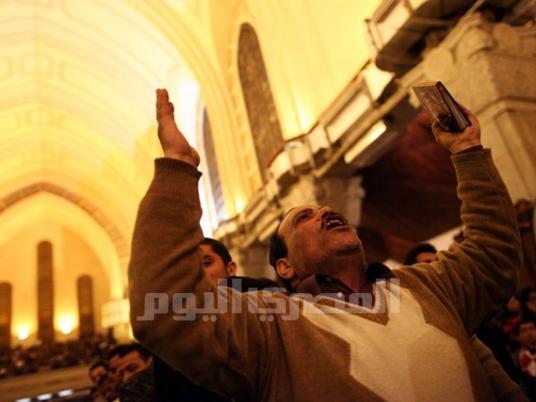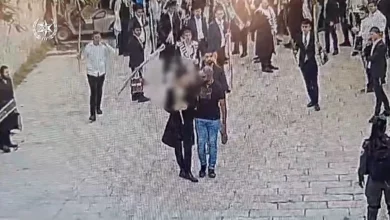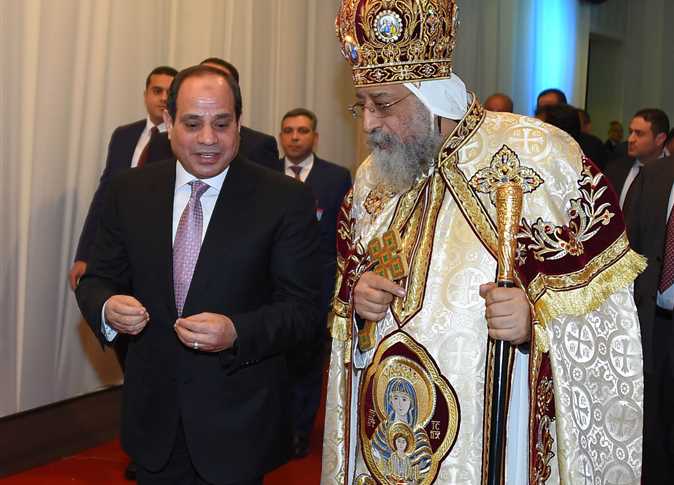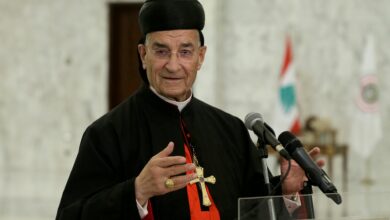
In front of the Supreme Court last Sunday, a group of a few hundred Coptic Christians protested against a recent ruling sentencing 12 Christians to life in prison for their role in sectarian clashes in the Upper Egypt city of Abu Qurqas in April 2011. All the Muslim suspects were acquitted.
“Mina Daniel said it loud, the Copts are always the victims!” the group chanted. Daniel, a Coptic activist, was killed last October when army forces brutally attacked an anti-discrimination protest, leaving 27 people dead, many of them run over by military vehicles.
The past few years have been difficult for Egypt’s Coptic Christian minority, with several horrendous sectarian attacks and a general sense of uncertainty. The election of the next president, currently underway, doesn’t promise to make things easier for Egypt’s Christians any time soon.
Of the two presidential candidates headed to the runoff election on 16 and 17 June, neither presents an inspiring choice for Copts. A victory for the Muslim Brotherhood’s candidate, Mohamed Morsy, is viewed in the community as a step toward second-class citizenship status. But a victory for the secular candidate, Ahmed Shafiq, a member of the former regime whom Copts voted for in large numbers during the first round, represents, at best, a reversion to the status quo under Hosni Mubarak — not exactly the positive, revolutionary change for which many hoped.
Many Copts feel that the next round of voting is just an occasion to choose their preferred oppressor.
“Should they accept to pay a fine to live in Egypt and be excluded from political posts and other things that have come up in Parliament or a government that will create sectarian clashes, massacres and burn churches to keep its tight grip on the state like Mubarak used to do?” says Mounir Megahed, the head of the group Egyptians Against Religious Discrimination.
Mubarak’s regime was accused of orchestrating sectarian clashes to distract attention from corruption and other hot topics.
2011 began with trauma for Egypt’s Copts, when an explosion at the Two Saints Church in Alexandria on New Year’s Eve killed 21 worshippers.
After Mubarak’s fall, Copts watched anxiously as previously repressed Islamists, both the Muslim Brotherhood and the more conservative Salafis, emerged to take a prominent role in political life. At the same time, sectarian violence continued.
While many Christians have been prosecuted and convicted for their roles in sectarian incidents in the past year, many of their attackers went unpunished.
Emad Erian, a member of Maspero Youth Union, an activist group that was formed to advance the demands of the Copts and the revolution, says that Copts have been discriminated against on all official levels from the government to the ruling military council, Parliament and the judiciary.
Meanwhile, the Islamist parties garnered 70 percent of Parliament and frequently drifted into discussions of propositions to protect Islam and Sharia.
“We have the right to be scared,” says Rady Eskander, an activist protesting for the freedom of the Abu Qurqas convicts.
Eskander says that as long as the Brotherhood’s power keeps growing, the state of the Christians will deteriorate. He is afraid that civil war will erupt if Morsy wins the presidency.
Eskander is backing Shafiq in the race, hoping that his secular strongman style will protect Copts better than the Brotherhood’s Islamic framework. Besides, he says, after the revolution, Shafiq will have to run the executive branch more responsively than the previous president. “The old regime won’t return even if Mubarak himself returns,” he says.
The Christian community has come under attack for allegedly voting collectively for Shafiq in the first round of the elections based on church directions.
Videos of priests calling on Christians to vote for Shafiq and speculations that Copts formed a voting bloc that swayed the vote in Shafiq's favor were widespread on social media following the elections.
Islamic preacher Fadel Suleiman posted a video on YouTube calling on Copts to vote for Morsy instead in the runoffs.
“This is a message to my Coptic friends: If I were you, I would not vote for Shafiq, simply because one day I will die and meet Mina Daniel and others who were run over by military trucks in Maspero and I wouldn't be able to look them in the eye,” he said in the video.
Some Copts concede that they received text messages from their church urging them to vote for Shafiq, but most insist that the church didn’t affect the vote and that the Christian community voted for all non-Islamist candidates, not only Shafiq.
Megahed says that since the revolution began, the Coptic community has come out from under the church’s grip on politics. But, he says, support for Shafiq could have been the independent choice of many Christians, as well as Muslims, out of fear.
“There’s a belief that he has a better chance of beating the Islamists and that he’s a firm military man who can restore stability,” says Megahed.
This was the reason Um Nancy, who was leading the chants in the protest at the Supreme Court, chose Shafiq.
“He’s a national man, but [the Islamists] don’t want to give him a chance because they know he’ll throw them in jail again,” she says, adding that she wouldn’t mind the idea.
Um Nancy reflects a widespread feeling among Christians that the threat of an Islamist state is much more serious than the old regime, as oppressive as it was.
“If Shafiq doesn’t perform well, we can go down to the street and take him out, but if [the Islamists] come we won’t be able to get rid of them, when the cancer enters the body you can’t drive it out,” Um Nancy says, “We don’t want positions or money, let them have it all. We just want them to leave us alone.”
Um Nancy believes that the battle now is between the civil and the religious state and not the old regime and the revolution. “There is no revolution, the Brotherhood took it,” she says.
Many of those who have suffered most from the revolution have lost their enthusiasm for it, whether from the Christian community, other minorities, low-income citizens or upper class businessmen whose interests were affected.
With almost a quarter of the vote nationwide going to Shafiq, it is impossible that the Christian community was responsible for his victory. Experts have explained that Shafiq’s gains were the result of a general dissatisfaction with the Islamists’ performance and a hunger for stability.
Many Copts believe the claim that the Christian community caused Shafiq’s rise to the runoffs is an attempt by the Islamist forces to create religious polarization that would frame Morsy as the candidate of the Muslims and Shafiq as the candidate of the Christians.
Tarek al-Zomor, a leading member of Jama’a al-Islamiya, told Al-Masry Al-Youm last week that Copts should apologize if it was proven that the church instructed them to vote for Shafiq, saying that they put their personal interests ahead of the national good.
But not all of the Coptic community is supporting Shafiq. Gamal Asaad, a prominent Coptic writer and thinker, said on his Twitter account Wednesday that it was better to give the Muslim Brotherhood a chance than to reproduce the old regime by choosing Shafiq.
“They are an opposition political faction and they have the right to have their chance, no matter how much we disagree with them. Let’s not do like Mubarak, who convinced us he was the better of two evils,” he wrote.
In his campaigning, Shafiq has been trying to cash in on the fear of the Islamists among minorities, repeating that “Egypt is for all Egyptians.”
Morsy, on the other hand, is adopting an increasingly reassuring discourse, asserting in his media and public appearances that all of Egypt’s minorities are “Egypt’s sons,” have equal rights, and will have a fair share in official posts. The Morsy campaign recently changed its slogan to “Our strength is in our unity.”
It’s unlikely however that his new discourse would succeed in eliminating the mistrust and fear of the Muslim Brotherhood in the Coptic community.
Faced with these two options, Erian says that he counts on neither to uphold the rights of the Copts in Egypt.
“No one will protect the Christians in Egypt except for our God in the heavens,” he says.




